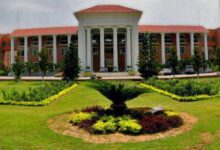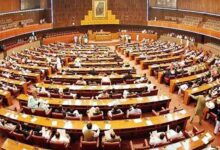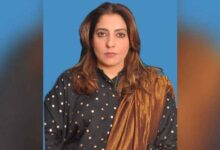UNDP Continues its Efforts to Break HIV/AIDS Stigma
Karachi: The United Nations Development Program (UNDP) is taking another significant step towards breaking the silence and stigma surrounding HIV/AIDS. Following successful workshops in Islamabad, Peshawar, and Lahore, the latest two-day sensitization workshop in Karachi sought to connect with and empower the media professionals, predominantly covering health issues, with the tools to tackle misconceptions, report ethically, and create a more empathetic narrative about HIV/AIDS-affected communities in Pakistan.
Media professionals from various print, electronic, and digital outlets actively participated in the training workshop, vigorously interacting with the trainers and speakers on issues about HIV/AIDS.
The first day of the workshop was dedicated to challenging discrimination and stigma associated with HIV/AIDS.
Speaking at the inauguration of the activity, Dr. Sikandar Memon, Manager CDC HIV, Communicable Disease Control Center, spoke about the scope, spread, and success of the AIDS Control Program in Sindh. He stressed the importance of collaborative efforts to combat HIV/AIDS and strongly underlined the importance of collaborative efforts to combat HIV/AIDS. He said: “Together, we can create a society where individuals living with HIV/AIDS are not defined by their status but by their resilience and potential. This workshop is a testament to our collective commitment to this cause, and as media has always played an important role in helping the HIV/AIDS-affected community, we are confident that this collaboration with media will continue.”
Waheed Ahmed Khalfe, a seasoned journalist with extensive experience in national media, shared his insights on the issue of HIV in Pakistan. He highlighted the historical context and challenges associated with HIV in the country and stressed how the media can actively address the stigma in society. He said that by presenting accurate and compassionate stories, journalists can contribute significantly to changing public perceptions and reducing discrimination against HIV/AIDS-affected communities in Pakistan.
Ms. Sheher Bano, a distinguished journalist and senior trainer, led a profound session on building empathy towards HIV/AIDS-affected communities. She highlighted, “Empathy is the key to dismantling stereotypes. We must understand that individuals living with HIV/AIDS are living, breathing human beings, and our support could help them live normal, healthy, and productive lives.”
Ghulam Mustafa Buledi, senior journalist and an expert in media-related ethical reporting and behavior change communication issues, took the lead on the second day. He emphasized the importance of maintaining ethical standards while reporting sensitive health issues like HIV/AIDS. Buledi stated: “Our role as journalists extends beyond storytelling; it includes safeguarding the dignity and rights of the people we report on.”
The workshop also featured valuable insights from Summayyah Rasheed, Program Officer Stigma and Discrimination, and Dr. Sikandar Memon, Manager CDC HIV.
Summayyah Rasheed provided an overview of the project’s objectives and activities. “Our goal is to reshape the narrative around HIV/AIDS, and this workshop is a significant part of that effort,” she explained.
Dr. Umar Riaz, Program Specialist, said that media professionals play a pivotal role in dispelling myths, reducing stigma, and fostering a more inclusive society for individuals with HIV/AIDS. He said that collaboration with the media is critical in shaping the lives of the HIV/AIDS-affected communities toward a brighter, stigma-free future in Pakistan.
Mubashir Akram facilitated engaging training and dialogue sessions throughout the workshop.
This workshop in Karachi continues UNDP’s commitment to engage with media professionals, ultimately fostering a more compassionate understanding of HIV/AIDS and driving positive change in public perceptions. This was the fourth in the series of five training and consultation workshops, of which the last activity will be held in Quetta, Balochistan.





